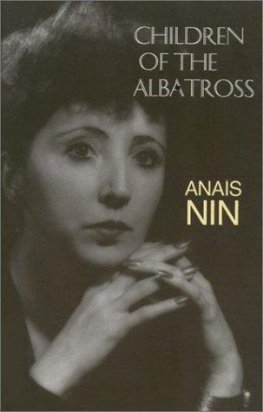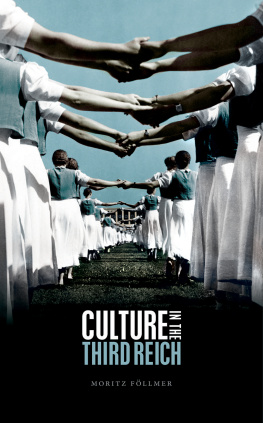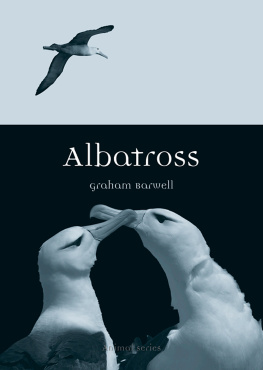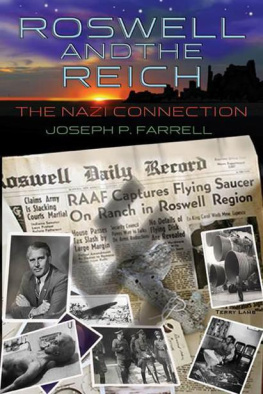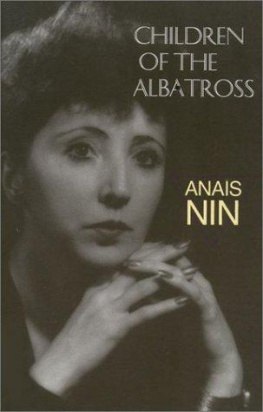Strange Bird
NEW DIRECTIONS IN NARRATIVE HISTORY
John Demos and Aaron Sachs, Series Editors
The New Directions in Narrative History series includes original works of creative nonfiction across the many fields of history and related disciplines. Based on new research, the books in this series offer significant scholarly contributions while also embracing stylistic innovation as well as the classic techniques of storytelling. The works of the New Directions in Narrative History series, intended for the broadest general readership, speak to deeply human concerns about the past, present, and future of our world and its people.
Strange Bird
The Albatross Press and the Third Reich
Michele K. Troy

Copyright 2017 by Michele K. Troy.
All rights reserved.
This book may not be reproduced, in whole or in part, including illustrations, in any form (beyond that copying permitted by Sections 107 and 108 of the U.S. Copyright Law and except by reviewers for the public press), without written permission from the publishers.
Yale University Press books may be purchased in quantity for educational, business, or promotional use. For information, please e-mail (U.K. office).
Set in Bulmer type by Integrated Publishing Solutions.
Printed in the United States of America.
Library of Congress Control Number: 2016948025
ISBN 978-0-300-21568-7 (hardcover : alk. paper)
A catalogue record for this book is available from the British Library.
This paper meets the requirements of ANSI/NISO Z39.48-1992 (Permanence of Paper).
10987654321
For the generations:
Virginia and Bart Troy
Tess, Isabella, and Theodore Robinson
I have always imagined that paradise will be a kind of library.
Jorge Luis Borges
Lock up your libraries if you like; but there is no gate, no lock, no bolt that you can set upon the freedom of my mind.
Virginia Woolf, A Room of Ones Own
Contents
Acknowledgments
The moment scholars yearn for is the one we most often see depicted in police detective shows: someonea woman, sayraces into a basement archive, rifling through box after box, file after file, the intensity building as she runs her hands through her hair, jotting down notes, until finally her face lights up. The answer is there, within reach. The music builds as the information seeker seizes upon the file that will deliver answers that have long evaded her. Yet research trips are also filled with mishaps: the wrong file that arrives during the last hopeful minutes of a research day because an archivist read the researchers 7 as a 1 (she forgot to draw a line through it as they do in Germany); the box that no one can locate, even though it is not checked out; the realization, on arriving in Berlin, that she should be in Leipzig instead because the Nazi regime relied heavily on regional organizations for its bureaucratic daily work; the clock ticking the days down to zero, when she returns home without her questions answered, yet again.
So I am immensely grateful to the archivists who guided me on my research journey at the two dozen archives that provided the foundation for this book, among them Carola Wagner at the German Federal Archives in Berlin-Lichterfelde, Lucia van der Linda of the Political Archive in Berlin, and Barbara Koschlig at the City Archive in Hamburg. Special thanks go to Monique Leblois-Pechon at the French National Archives for digging into a file slated for transit; Carola Staniek, Director of the German Book Museum at the German National Library, for answering my ongoing and obscure book-trade questions; and Thekla Kluttig of the City Archive of Leipzig for leading me in an inspired behind-the-scenes file hunt and for creating time when I thought I had none left. Not to be forgotten is a staff member at the French National Archives, whom I know only by his first name, Thierry, who tracked down the mysteriously missing, all-important, Box 1006 on my very last day in Paris. Without the patience and persistence of people like these, this book would not be here.
Funding for this project comes from multiple sources. I thank the Harry Ransom Center at the University of Texas, Austin, for a Mellon research fellowship in 2005; the Bibliographic Institute of America for a grant to work at New York area libraries in 2006; the German Academic Exchange Service (Deutsche Akademische Austausch Dienst) for a 2012 grant to explore German archives; and most of all, the University of Hartford, where the Provosts Office provided sabbatical time and travel funds, and the Faculty Senate gave me Coffin Grants and summer stipends. David Goldenberg, my dean at Hillyer College, not only gave me a crash course in money launderinguseful when writing about Holroyd-Reeces fast-and-loose financial dealingsbut has also been a tireless fundraiser and supporter of my work. Thanks to his efforts, the Jay Camp Fellowship and the Gareau Fund offered additional travel monies and time.
Scholars need many things to write a book, especially one that requires so much research abroad: access to information; a place to rest their heads; and, if theyre lucky, the chance to exchange ideas with convivial, open-minded people over hearty meals after days spent in the company of old files (which, however entrancing, are not particularly adept at dinner conversation). I have been immensely fortunate to have found all of these. Jean-Dominique Fabrega scanned for me Holroyd-Reeces thirty-page Christmas card for 1938, which I discovered on his blog Histoires dHistoire; Yvette Vibert shared documents from her fathers days with the Pegasus Press; Genevive Latour shared memories of the German Occupation of Paris and led me to Denys Ghiel, the daughter of the French Albatross managing director Jean-Louis Bricaire. Both she and Michel Ollendorff, the son of Holroyd-Reeces right-hand man, Wolfgang Ollendorff, opened their homes and family albums to me. Editor Marc Jaffe told me of his early days with Kurt Enoch and Victor Weybright at the New American Library. Heike Schrammer and Gabriella Hemmersbach let me stay with them in Berlin, as did Reinart Feldmann and Hilde Koller in Leipzig. Michael Schwab played detective at the British National Archives before I could get there myself, and Sebastian Pannwitz sent me leads from the German Collection in Moscows National Archive. My uncle, Onkel Dick Troy, helped me wade through Nazi spreadsheets to uncover the story behind them. Helen Rozwadowski and Daniel Hornstein gave me a writers refuge in New London, Connecticut, as did Eric Martinson, in Wellfleet, Massachusetts. Dorothea Hauser, the lawyer-scholar who managed the Warburg Archive in Hamburg, spontaneously offered her guest bedroom in Berlin, and her outside-the-box thinking about my research. Joachim Gerdes, with his polished Italian, helped me navigate the Mondadori Fondazione archive in Milan, though it had been two decades since we had seen one another in Germany. He and his wife, Mariarosario, and their son, Dario, also gave me a home away from home in Genoa. Special thanks to Albatross-Tauchnitz collector Alastair Jollans for sharing his knowledge of these series and contributing so many images from his collection, and to Hauke Voss for his friendship, his company on bicycle forays to Albatross-related spots in Hamburg, and a standing room at the Pension Voss.
No book of this scope is built on air. I am grateful for the thoughtful networks of scholars, and for their meticulous and groundbreaking scholarship, which have offered me a solid base for my own research. The University of Hartfords History Reading GroupKatherine Owens, Avi Patt, Michael Robinson, and Bryan Synchefirst suggested that I break away from the traditional academic history, and Erin Striff was a motivating writing partner for a string of Saturdays. Marie Franoise-Cachin, in Paris, has graciously introduced me to international scholars. Pascal Fouch met with me to discuss French publishing during the German Occupation. Alan Steinweis not only informed my research through his work at the intersection of economics and culture in the Third Reich but also emailed me research suggestions and supported my grant applications though we had never even met. In Jan-Pieter Barbian, I encountered both an expert, author of many books on Nazi literary politics, and a generous spirit; whether responding to my cold emailing with research suggestions, meeting to talk Nazi literary politics behind the New York Public Library, or writing letters of recommendation, Dr. Barbian has been an important sounding board. In a time when everyone seems increasingly busy, these scholars have offered a model of generosity which I highly value.
Next page

